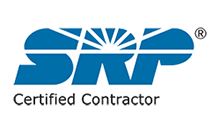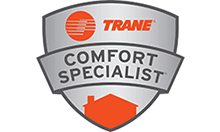There are several benefits to getting an HVAC system replacement. The main one is that you won’t have to worry about energy costs again. You’ll also enjoy the comfort of your home for years to come. But what should you expect when hiring a contractor for your system replacement? Read on to learn about the requirements, costs, and timeframe. There are even financial incentives to consider. However, you should be aware of the risks before you sign on the dotted line.
Costs
If you’re interested in improving the efficiency of your home’s HVAC system, you’ll want to compare HVAC replacement costs before making a decision. HVAC replacements can run anywhere from four to ten thousand dollars, depending on the system type and size. Some HVAC companies spend large amounts on marketing and salespeople, but these expenses are typically included in the total cost. Additionally, you’ll need to pay more for specialty induct and labor, which add up to about 30 percent to the total cost.
If you’re planning to replace your system, it’s wise to get several estimates from different HVAC companies to compare their prices. While it’s not advisable to replace an old HVAC system before it reaches 10 years, it’s important to replace it every 10 years or so, since newer energy-efficient models may be available. Furthermore, it’s much cheaper to replace a single component, instead of overhauling the entire system.
Time frame
There are many reasons why you might want to consider an HVAC system replacement. These include the fact that your current HVAC is old or failing, the cost of repairs, and how often you need to operate the system. The lifespan of your system depends on its usage, but it typically lasts anywhere from 16 to 20 years. Considering that your air conditioner may need repairs frequently, replacing it at 12 years is not a good idea. If you plan to replace your entire system in a few years, you may be able to spread out the costs over more than one replacement.
A new HVAC installation may take a few days or longer. The installation time is largely determined by the size of your house and how many units you need. A larger home may require several larger units, extending the duration of the installation. If you are planning to change out a simple system, the time required for installation is much shorter. Typically, changeout installations take only one day. The time involved depends on the complexity of the installation process and the new system’s components.
Requirements
When your HVAC system is older, you may be wondering if it is time for a replacement. Fortunately, these systems can last for up to 10 years with proper maintenance. This way, you can extend the life of your current system while saving money to buy a new one. When you notice a sudden spike in energy bills, you may need to have your HVAC system replaced. Compare utility bills for the past year and last year to see if your bills have changed.
When your HVAC contractor comes to replace your current system, he or she will typically repair or replace the existing ductwork. The replacement will include installing a new compressor and air handler, as well as inspecting the ductwork to ensure the unit is functioning correctly. This means that you will save money on installation costs in the long run and will enjoy maximum system efficiency. During the replacement process, the contractor will arrive with a crew and one or two assistants to begin setting up work areas.
Financial incentives
Many homeowners are facing a heating and air conditioning (HVAC) system replacement and wonder if there are any tax incentives available to them. The good news is that there are many different types of incentives available for these kinds of improvements. In fact, many manufacturers offer special financing plans that help homeowners finance their new systems. These special financing options can include promotional deals, lines of credit, and online tools to manage their account. The best part is that many HVAC manufacturers do not penalize you if you pay off your balance early.
In addition to tax rebates, some energy efficient HVAC systems qualify for government subsidies. The federal government offers tax credits for homeowners who install an energy efficient HVAC system. By choosing an energy efficient HVAC system, homeowners can reduce their energy bills and contribute to the environment. These incentives may cover up to 30 percent of the cost of installation. Some of these tax credits are even available for commercial customers. It is best to look for state-specific incentives to find the best ones for you.
If you need your entire HVAC system replaced and are in the Gilbert, Chandler, Tempe, Queen Creek, Mesa, AZ area contact Dukes of Air for help.











